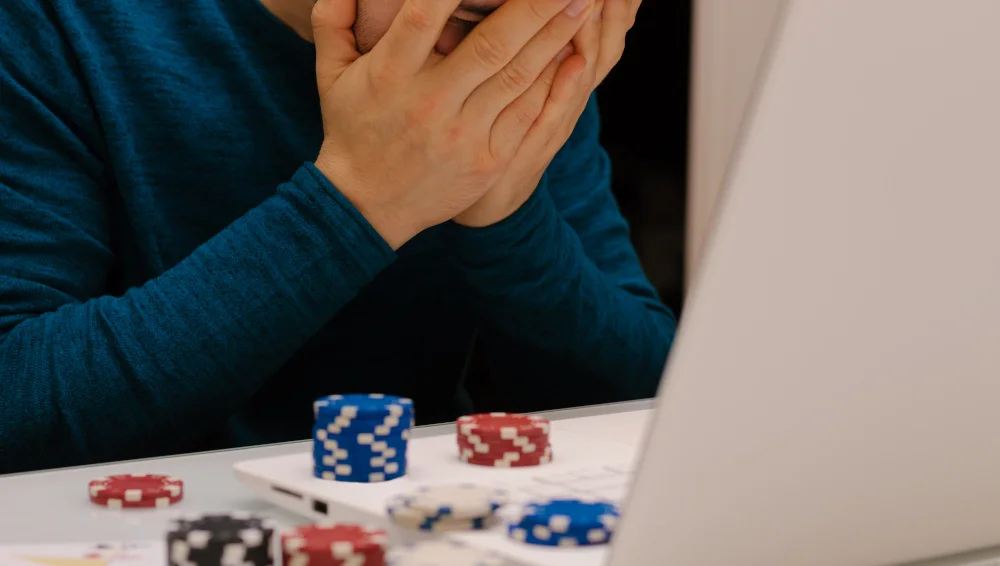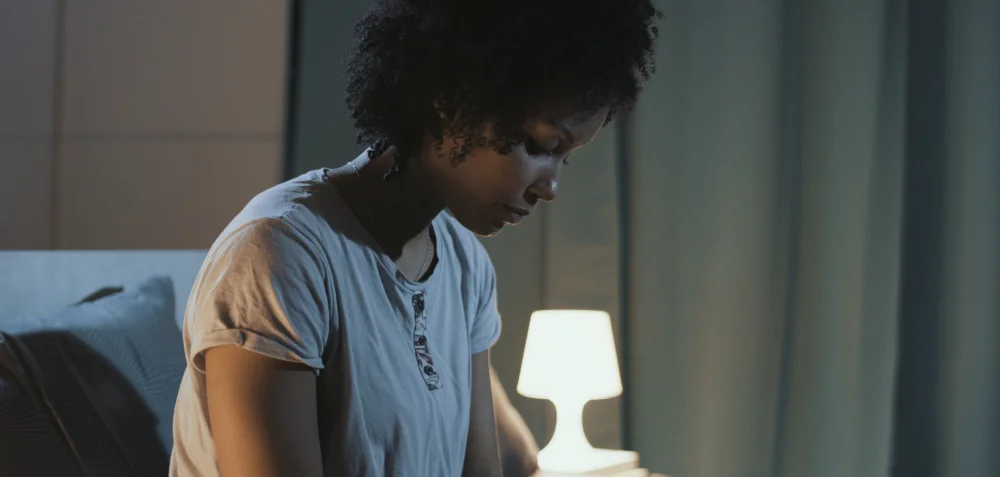
It’s just after 2 a.m. in Tzaneen and Kagiso’s eyes are burning. Not from tears or even exhaustion, but from the soft blue light of his phone screen, which hasn’t gone dark in almost four hours. He should’ve been asleep by eleven, but he needed the payout. Not to get rich, he stopped believing in that kind of story years ago, but to balance the week. There’s still a school outing fee to cover. R170 by Friday. And he’s already used up the overtime money fixing a broken geyser. So now he’s sitting in a plastic chair under a flickering porch bulb, watching animated reels spin for the eighth time this session. He’s got R22.50 left in the account. Two more bets, maybe three. Then he’ll sleep. Maybe.
The house behind him is quiet. His girlfriend and baby are asleep, both breathing steadily under the fan’s soft whirr. It’s the only time he gets silence. During the day, there’s work. Then minibus rides. Then the shouting. Then the cleaning. Then making a plan for the next day. Night is the only window where he can be alone, make a few moves, feel like he’s not just reacting to everything. The betting started small. A way to keep his brain busy. A way to unwind without spending R150 on drinks or watching reruns of shows he couldn’t relate to. Now, it’s a rhythm. A cycle. Tap, spin, check balance, exhale. Sleep when the phone hits your chest.
Three hours. That’s what he averages. Some nights it’s less. On weekends, maybe a little more. But three is the number. Enough to get through work, just barely. Enough to function without alerting his boss. He knows it’s not sustainable. The headaches come more often now. He sometimes forgets words mid-sentence. But the idea of stopping feels worse. Because stopping means the lights are off, the house is still, and there’s nothing to distract him from the weight of the month.
He’s not the only one. In fact, he’s part of something bigger, even if no one ever talks about it. In WhatsApp groups and late-night signal zones, there’s a quiet population of South Africans who are betting through fatigue. Not because they want to, but because sleep doesn’t feel like rest when your money’s still moving. In Khayelitsha, Andile plays until 4 a.m., then wakes up at 6 to open his spaza. He doesn’t see it as gambling. He sees it as maintenance. “It’s like petrol,” he says. “You don’t always know how much you’ll need, but you need some.”
 The apps don’t sleep either. They’re built to run 24/7. There’s always a game. Always a wheel. Always a bonus round if you log in within the next 60 seconds. The notifications come soft, friendly, persistent. “Your lucky time is now.” “Don’t sleep on this spin.” “Midnight magic loading…” For someone already stretched thin, it doesn’t take much. Just a nudge. Just R20. Enough to keep you upright, hoping, involved. And because it’s digital, no one sees it. You can be broke, clean, employed, respectable, and still barely getting by because your nights are spent chasing margins on games you don’t even enjoy anymore.
The apps don’t sleep either. They’re built to run 24/7. There’s always a game. Always a wheel. Always a bonus round if you log in within the next 60 seconds. The notifications come soft, friendly, persistent. “Your lucky time is now.” “Don’t sleep on this spin.” “Midnight magic loading…” For someone already stretched thin, it doesn’t take much. Just a nudge. Just R20. Enough to keep you upright, hoping, involved. And because it’s digital, no one sees it. You can be broke, clean, employed, respectable, and still barely getting by because your nights are spent chasing margins on games you don’t even enjoy anymore.
Phindile in Springs doesn’t gamble to win. She gambles to stay awake. She works two jobs, admin by day, remote support in the evenings, and plays small-stake games from 1 to 3 a.m. every night to push through the fatigue. She says the spinning calms her. The rhythm of it. The soft music, the flashing lights. “It’s like a lullaby that doesn’t let me sleep,” she says. She knows it’s a problem. She also knows the stress of running out of formula on a Thursday and not getting paid until Monday. Between those two realities, the decision doesn’t feel irrational.
The cycle looks different for everyone, but it always has the same beats. Play. Lose. Recharge. Win. Play again. Watch the clock. Regret the sunrise. Rinse. Sleep. Repeat. It’s not about being irresponsible. It’s about survival. No one in these corners is throwing money away for sport. They’re placing bets the same way others apply for loans, desperate, hopeful, backed into a corner. But unlike loans, there’s no paperwork. No waiting period. Just a finger tap and the illusion that maybe, this time, the wheel will land right.
The fatigue builds quietly. It doesn’t announce itself. One day you oversleep and miss the morning taxi. Another day you’re snapping at your kid for asking a question. The body starts whispering warnings your mind is too fogged to hear. But still, you play. Because what’s the alternative? Staring into the ceiling at 3 a.m. wondering how you got here? No. Better to chase the feeling. Better to believe in the next spin. Just until things stabilise.
There’s no moral at the end of this. No grand takeaway. Just a slow truth that’s hard to name. That there’s a class of people in this country using luck as a coping mechanism. Not to chase dreams, but to hold their lives together. R20 at a time. Three hours of sleep a night. Enough to function. Enough to not fall apart. Just enough. Until maybe it won’t be.
But until then, spin, sleep, repeat.







